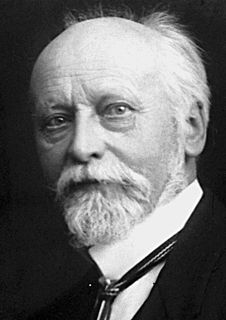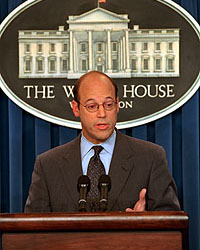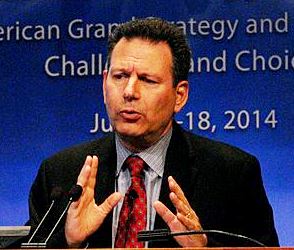A Quote by Ludwig Quidde
When distrust exists between governments, when there is a danger of war, they will not be willing to disarm even when logic indicates that disarmament would not affect military security at all.
Related Quotes
Do not hide behind utopian logic which says that until we have the perfect security environment, nuclear disarmament cannot proceed. This is old-think. This is the mentality of the Cold War era. We must face the realities of the 21st century. The Conference on Disarmament can be a driving force for building a safer world and a better future.
There is no scientific antidote, only education. You've got to change the way people think. I am not interested in disarmament talks between nations . . . What I want to do is to disarm the mind. After that, everything else will automatically follow. The ultimate weapon for such mental disarmament is international education.
Safety from external danger is the most powerful director of national conduct. Even the ardent love of liberty will, after a time, give way to its dictates. The violent destruction of life and property incident to war, the continual effort and alarm attendant on a state of continual danger, will compel nations the most attached to liberty to resort for repose and security to institutions which have a tendency to destroy their civil and political rights. To be more safe, they at length become willing to run the risk of being less free.
The tension of a mysterious danger is even more unbearable than danger itself. People hate the vacuum of an unknown situation. They want security. They even prefer war to the insecure expectation of a war with its threat of enemy surprise. This vague fearful expectation acts on their fantasies. They anticipate all kinds of mysterious dangers; they begin to provoke them. It is the evocation of fear and danger in order to escape the tension of insecurity.
Some might complain that nuclear disarmament is little more than a dream. But that ignores the very tangible benefits disarmament would bring for all humankind. Its success would strengthen international peace and security. It would free up vast and much-needed resources for social and economic development. It would advance the rule of law.
To have security against atomic bombs and against the other biological weapons, we have to prevent war, for if we cannot prevent war every nation will use every means that is at their disposal; and in spite of all promises they make, they will do it. At the same time, so long as war is not prevented, all the governments of the nations have to prepare for war, and if you have to prepare for war, then you are in a state where you cannot abolish war.
In no circumstance would the United States or any other nation have the right to mount a military invasion to overthrow another government for the ostensible purpose of achieving disarmament. Rather, the United States would respect the Charter of the UN and would strive to achieve disarmament and settle the differences among nations through peaceful diplomatic means.
In the compound republic of America, the power surrendered by the people is first divided between two distinct governments, and then the portion allotted to each subdivided among distinct and separate governments. Hence a double security arises to the rights of the people. The different governments will control each other, at the same time that each will be controlled by itself.
Particularly when the war power is invoked to do things to the liberties of people, or to their property or economy that only indirectly affect conduct of the war and do not relate to the engagement of the war itself, the constitutional basis should be scrutinized with care. ... I would not be willing to hold that war powers may be indefinitely prolonged merely by keeping legally alive a state of war that had in fact ended. I cannot accept the argument that war powers last as long as the effects and consequences of war for if so they are permanent -- as permanent as the war debts.
































